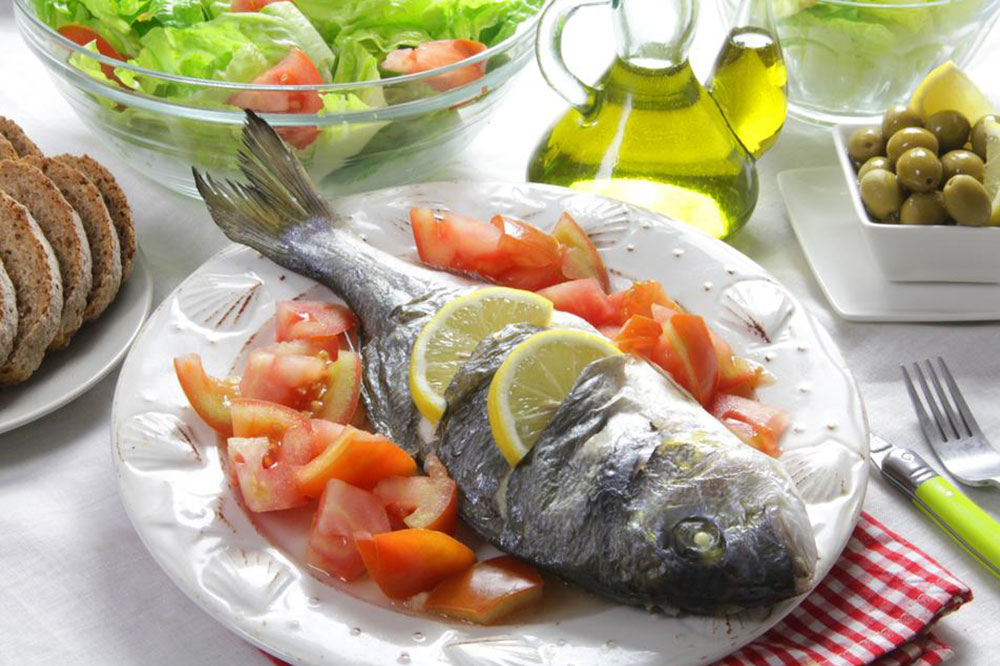
Benefits of a Mediterranean Diet for Skin Health
Apart from reducing the risk of chronic illnesses like Alzheimer’s, dementia, heart disease, stroke, blood pressure, Parkinson’s, and type 2 diabetes, a Mediterranean diet has a host of health benefits for your skin too. Your skin, the largest organ in the body, derives its nutrition from the food you eat, and a Mediterranean diet is one of the healthiest diet options. While vitamins and minerals can help speed up the recovery process of the skin from wounds, scars, acne, swelling, and redness, they can also make your skin shine flawlessly and keep it smooth and taut. On the other hand, deficiency of essential nutrients can cause wrinkles and make your skin dry and parched. Also, healing lesions, cuts, and bruises on your skin take longer to heal.
A Mediterranean diet emphasizes a high intake of fresh fruits and vegetables of all colors, along with whole-grain rice, bread, and pasta, assorted nuts and seeds, beans and legumes for proteins, aromatic herbs and spices, and olive oil. This diet also includes fatty cold-water fish, seafood, lean meats like chicken and other poultry, dairy, fermented cheese, yogurt, and wine in moderate amounts. The Mediterranean diet provides all the nutrients essential for healthy living. Here’s how it benefits your skin:
- Antioxidant-rich foods like kiwi, grapes, pear, prune, apricot, and blueberry improve circulation, protect the skin from cell damage, maintain its elasticity, and prevent premature aging.
- The collagen producing ability of vitamin C helps repair damaged skin cells and aids natural regeneration. Vitamin C-rich tomatoes, red peppers, papaya, citrus fruits, strawberries, broccoli, and kiwis reduce fine lines and wrinkles and keep the skin supple.
- Oatmeal, barley, olives, whole wheat, almonds, peanuts, legumes like kidney beans, chickpeas, dried beans, black beans, split peas, brown, red, yellow, and green lentils, avocado, asparagus, broccoli, cauliflower, eggplant, peppers, spinach, green beans, pears, plums, grapes, apricots, blueberries, grapefruit, shrimp, salmon, tuna, chicken, soy and its products, plain yogurt, Many of the foods in this diet are low on the glycemic index, and it has been proven that a low-glycemic diet prevents spikes in blood sugar levels, reducing inflammation and sebum production, which, in turn, reduces acne.
- Sunflower seeds and almonds are rich in vitamin E and protect the skin from damage caused by free radicals, UV rays, and pollution. Additionally, this vitamin also keeps skin hydrated.
- Loaded with fresh fruits and vegetables that have high water content like orange, pineapples, plums, raspberries, zucchini, cucumber, celery, and lettuce, the Mediterranean diet thoroughly hydrates and nourishes the skin.
- Orange and red-colored fruits and vegetables and leafy greens like carrots, spinach, and kale, along with broccoli, contain carotenoids like beta carotene, lutein, and lycopene that maintain the complexion of the skin by helping shed dead cells and replacing them with new ones.
- Limiting or avoiding the intake of sugar and processed foods in all forms is a notable health benefit of a Mediterranean diet. Stable sugar levels prevent the formation of acne and calm soreness and inflammation of the skin.
The next time you reach out for synthetically manufactured creams or masks that promise you clear glowing skin, remember that a wholesome Mediterranean diet has the same health benefits, and maybe even more!



